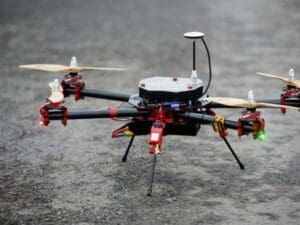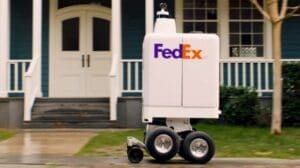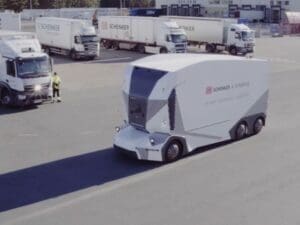 Much like the Olympics were pushed off for a year due to the Covid-19 pandemic, so too was the 2020 UEFA European Football Championship, commonly referred to as UEFA Euro 2020 or simply Euro 2020. This was the 16th Euro Championship, a quadrennial international men’s football championship of Europe. And the final, which was played last Sunday, saw Italy take on England, who was trying to win its first major soccer tournament since 1966. After a hard-fought, back-and-forth match, we ended up in a shoot-out, which Italy won 3-2, crushing the dreams of England in front its home crowd. This victory marked Italy’s second major victory in an all-Europe championship this year, having won Eurovision 2021 in May as well. For those that don’t know, Eurovision is an international song competition organized annually by the European Broadcasting Union, featuring participants representing primarily European countries. Each participating country submits an original song to be performed on live television and radio, with competing countries then casting votes for the other countries’ songs to determine a winner. Talk about winning across a number of disciplines for Italy. And now on to this week’s logistics news.
Much like the Olympics were pushed off for a year due to the Covid-19 pandemic, so too was the 2020 UEFA European Football Championship, commonly referred to as UEFA Euro 2020 or simply Euro 2020. This was the 16th Euro Championship, a quadrennial international men’s football championship of Europe. And the final, which was played last Sunday, saw Italy take on England, who was trying to win its first major soccer tournament since 1966. After a hard-fought, back-and-forth match, we ended up in a shoot-out, which Italy won 3-2, crushing the dreams of England in front its home crowd. This victory marked Italy’s second major victory in an all-Europe championship this year, having won Eurovision 2021 in May as well. For those that don’t know, Eurovision is an international song competition organized annually by the European Broadcasting Union, featuring participants representing primarily European countries. Each participating country submits an original song to be performed on live television and radio, with competing countries then casting votes for the other countries’ songs to determine a winner. Talk about winning across a number of disciplines for Italy. And now on to this week’s logistics news.
- Amazon patents trucks that unleash and direct fleets of delivery drones
- Sam’s Club unveils pilot for scan and ship
- FedEx’s autonomous delivery bot, Roxo, arrives in Japan
- FMC onboard for Biden’s ocean carrier ‘crackdown’
- Return scams jump as fraudsters exploit e-commerce boom
- Electric semi-trucks enter race toward zero emissions
- Shipt launches dietary preferences feature
 Autonomous vehicles continue to gain attention in the logistics space as companies look to automate everything from long-haul trucking to last mile deliveries. Amazon has won a patent for a new take on autonomous vehicles. In its latest patent filing, Amazon describes a scenario where delivery vans would carry items almost to their destination, then send out and direct ground drones to do the final drop-off. The delivery van would be stocked with packages and autonomous vehicles such as drones or sidewalk delivery bots. When the van got to a central location, it would deploy the drones or bots to make the last mile delivery. The interesting part is that the van would be equipped with the technology to analyze the best path for the drone to take, then beam the instructions to it wirelessly, meaning that each delivery drone would not be equipped with sensors or cameras. The secondary vehicle could be equipped with some kind of marking, like a QR code or a logo, that the van’s camera can track as the drone moves around. It remains to be seen whether this program ever sees the light of day.
Autonomous vehicles continue to gain attention in the logistics space as companies look to automate everything from long-haul trucking to last mile deliveries. Amazon has won a patent for a new take on autonomous vehicles. In its latest patent filing, Amazon describes a scenario where delivery vans would carry items almost to their destination, then send out and direct ground drones to do the final drop-off. The delivery van would be stocked with packages and autonomous vehicles such as drones or sidewalk delivery bots. When the van got to a central location, it would deploy the drones or bots to make the last mile delivery. The interesting part is that the van would be equipped with the technology to analyze the best path for the drone to take, then beam the instructions to it wirelessly, meaning that each delivery drone would not be equipped with sensors or cameras. The secondary vehicle could be equipped with some kind of marking, like a QR code or a logo, that the van’s camera can track as the drone moves around. It remains to be seen whether this program ever sees the light of day.
![]() Customers at select Sam’s Club locations will be able to test a new digital tool that is aimed at making the shopping experience easier. Or at least the part where they need to lug home big, bulky items. The company is testing a new app-based feature, Scan & Ship, that allows people to use a smartphone to buy items in the club and send purchases directly to the home. This allows customers to roam the aisles and retrieve the items that can easily fit in their car. For those that will not fit, they can scan the item into their cart, proceed with check-out on their mobile device, and have the bigger items shipped to their house. It will become a feature of Scan & Go, which allows customers to ring up purchases with a smartphone as they add items to their shopping carts.
Customers at select Sam’s Club locations will be able to test a new digital tool that is aimed at making the shopping experience easier. Or at least the part where they need to lug home big, bulky items. The company is testing a new app-based feature, Scan & Ship, that allows people to use a smartphone to buy items in the club and send purchases directly to the home. This allows customers to roam the aisles and retrieve the items that can easily fit in their car. For those that will not fit, they can scan the item into their cart, proceed with check-out on their mobile device, and have the bigger items shipped to their house. It will become a feature of Scan & Go, which allows customers to ring up purchases with a smartphone as they add items to their shopping carts.
 Two years ago, FedEx launched Roxo, its autonomous delivery robot in the US. Roxo uses pedestrian-safe technology from the iBot, as well as LiDAR and multiple cameras, allowing the zero-emission, battery-powered bot to be aware of its surroundings. After an expansion to Dubai, the delivery bot has now made its debut in Japan. Roxo has the capability to navigate unpaved surfaces, and to climb steps. Signals, lights and a signaling screen communicate to other people where it intends to go. The company cited Japan’s positive regulatory framework, world-class infrastructure, and a “fertile environment” for the testing and adoption of robotics as some of the reasons for launching Roxo in the country.
Two years ago, FedEx launched Roxo, its autonomous delivery robot in the US. Roxo uses pedestrian-safe technology from the iBot, as well as LiDAR and multiple cameras, allowing the zero-emission, battery-powered bot to be aware of its surroundings. After an expansion to Dubai, the delivery bot has now made its debut in Japan. Roxo has the capability to navigate unpaved surfaces, and to climb steps. Signals, lights and a signaling screen communicate to other people where it intends to go. The company cited Japan’s positive regulatory framework, world-class infrastructure, and a “fertile environment” for the testing and adoption of robotics as some of the reasons for launching Roxo in the country.
Federal Maritime Commission (FMC) Chairman Daniel Maffei has welcomed a White House executive order calling on the Justice Department to help the FMC investigate and potentially fine ocean carriers charging shippers unreasonable rates and fees. President Joe Biden’s executive order also urges the Surface Transportation Board to allow shippers to challenge inflated rates more easily when there’s no competition between routes. The White House issued a fact sheet summarizing the order, which is part of a broader order that includes 72 initiatives by more than 12 federal agencies to promote competition across the US economy. In responding to the order, Maffei said that because the FMC is an independent agency, it technically is not subject to presidential executive orders. “However, I very much intend to cooperate with it,” citing the agency’s ongoing investigation into ocean shipping practices. “The President is saying all hands on deck, which we appreciate.”
 As e-commerce surged during the Covid-19 pandemic, so too did returns. And with a surge in returns, came a surge in fraud. A new practice has been popping up which is referred to as “item not received” fraud. Customers order an item online, and when it is delivered, they contact customer service to say that the item was not delivered. For many retailers, they will simply offer a refund on the purchase, especially if it is under $500. During the pandemic, many carriers eliminated the need for signatures, which makes tracking deliveries that much more difficult. To combat the problem, carriers are now taking pictures of the item upon delivery and immediately emailing it to the customer.
As e-commerce surged during the Covid-19 pandemic, so too did returns. And with a surge in returns, came a surge in fraud. A new practice has been popping up which is referred to as “item not received” fraud. Customers order an item online, and when it is delivered, they contact customer service to say that the item was not delivered. For many retailers, they will simply offer a refund on the purchase, especially if it is under $500. During the pandemic, many carriers eliminated the need for signatures, which makes tracking deliveries that much more difficult. To combat the problem, carriers are now taking pictures of the item upon delivery and immediately emailing it to the customer.
 Albertsons recently made history by carrying out the country’s first commercial 100 percent zero-emission refrigerated grocery delivery using a class 8 battery-electric truck and refrigerated trailer. And now, a growing number of truck manufacturers, including Volvo, Daimler Trucks and PACCAR, are rolling out prototypes and ready-to-drive zero-emission vehicles. Globally, 334 models of electric commercial trucks are expected to launch through 2024, according to data from ACT Research. Of the 334 models, 281 are battery electric and 53 are fuel cell. The vast majority of electric vehicles in the US market use batteries. In fact, just 10 years from now, more than a third of class 4 through class 8 trucks will be battery electric, the firm forecasts.
Albertsons recently made history by carrying out the country’s first commercial 100 percent zero-emission refrigerated grocery delivery using a class 8 battery-electric truck and refrigerated trailer. And now, a growing number of truck manufacturers, including Volvo, Daimler Trucks and PACCAR, are rolling out prototypes and ready-to-drive zero-emission vehicles. Globally, 334 models of electric commercial trucks are expected to launch through 2024, according to data from ACT Research. Of the 334 models, 281 are battery electric and 53 are fuel cell. The vast majority of electric vehicles in the US market use batteries. In fact, just 10 years from now, more than a third of class 4 through class 8 trucks will be battery electric, the firm forecasts.
When it comes to crowd-sourced home delivery, one thing that is often missing is that personal touch. Well Shipt is looking to change that. The company is adding a new feature to its apps to expand personalization options: diet choices. Shipt has officially launched a new feature that allows shoppers to sort products according to nearly 20 dietary labels and save their preferences. This allows customers to choose from from options like the Keto and Atkins diets, vegan and vegetarian, along with wellness options like low-sodium, sugar-free and organic. The new feature also boosts tagged items in search results to match shoppers’ preferences. This feature is expected to help Shipt shoppers make faster trips and get items into customers hands a little quicker.
That’s all for this week. Enjoy the weekend and the song of the week, Zitti e Boni by Eurvision 2021 winner Måneskin.

















